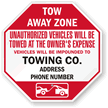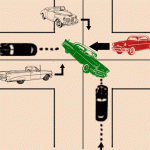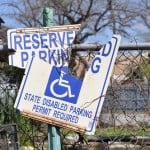Fake and unfair parking tickets: when cities cheat citizens
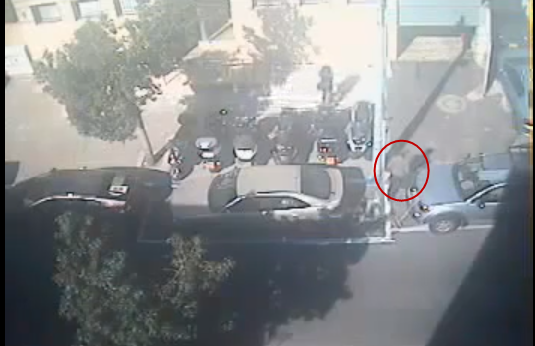
With a few licks of paint, a maintenance worker (circled in red) turned this parking space into a handicapped spot. [Image: captured from YouTube video]
This week in Tel Aviv, Hila Ben Baruch returned to her car to find it had been towed for parking illegally in a handicapped spot. The only problem was that it hadn’t been a handicapped spot when she left it there. Video footage from surveillance cameras across the street helped resolve the mystery and left the city with a lot of explaining to do: workers showed up, painted stripes along the side of the car and stenciled the disabled symbol to the pavement. Then, incredibly, a parking enforcement officer came along, towed the car and fined Ben Baruch the equivalent of $360 for the violation and the towing fee.
If Ben Baruch hadn’t thought to find footage of the malfeasance in action, she would have been left wondering how she could have missed the pavement markings, not to mention paying a hefty fine. Thanks to the surveillance footage (which Ben Baruch posted on Facebook, where it was picked up by the Israeli newspaper Haaretz), the city government has issued an apology, retracted the fine, and claims to be investigating how this happened.
While city parking authorities are rarely this brazen with their attempts to collect money from their citizens, there have been a few other instances of parking shenanigans that created unfair income for cities at the expense of people’s wallets.
New York City, for instance, used to have high pressure fire hydrants installed near taller buildings, to help fight terrible fires that spread quickly and caused panic throughout the twentieth century. The hydrants were officially no longer in use by 1979, but it took the city almost twenty years to remove the hydrants. Meanwhile, the parking authorities kept ticketing cars parked too close or blocking the high pressure hydrants – making thousands of dollars and violating common sense at the same time.
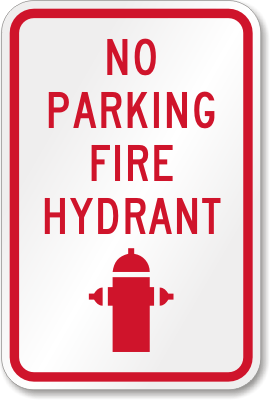
You should always pay attention to fire hydrants when parking on the street … even if they haven’t been in use for twenty years. [Via MyParkingSign.com]
While private properties are allowed to charge visitors for parking in garages, the Yonkers Parking Violations Bureau is the only entity allowed to collect from and enforce on-street parking. While the developers have apparently not replied to explain their sneaky move, they’ve finally issued an announcement that the meters will be removed – although no word on whether the fifty or so parking tickets that they issued (in similar colors to the city’s tickets) would be refunded to those unsuspecting victims of their deception.
These stories of municipal misbehavior remind us that while it’s easy to point fingers at the hundreds of thousands of casual lawbreakers and insidious fraudsters with faked disability placards, sometimes it pays to be vigilant and inquisitive about the parking rules that govern our lives – and especially in this hyper-networked age where you never know who’s watching.
-K. Cavouras
Related articles
Related Posts
Category: No Parking


















